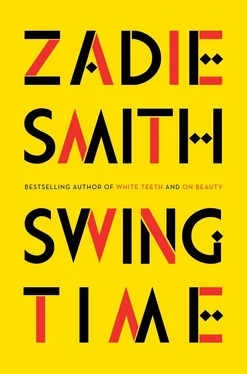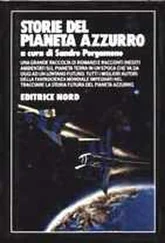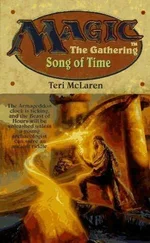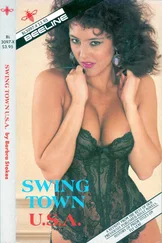“Paul Barron’s waiting for you at the gate,” she said. I stared at her and she said it again, this time irritably, like I was wasting her time. I pulled down my skirt and hurried past. We both knew it was not possible that Paul Barron was waiting for me at the gate, his mother picked him up every day in a Volkswagen, his dad was a policeman, he had a permanently trembling upper lip and big, wet, blue eyes like a puppy. I had not spoken two words to Paul Barron my whole life. Tracey claimed he’d put his fingers in her knickers, but I had seen him play that game and noticed that he ran around the playground without aim, looking for a tree to hide behind. I strongly suspected him of not wanting to catch anybody. But his was the right name at the right moment. I could be messed with as long as I was considered a part of that element in the school which expected and deserved no better, but Paul Barron was a part of the other world, he couldn’t be messed with, and this fictional connection with him, even for a moment, formed some kind of protection. I ran down the hill to the gate and found my father waiting for me there. We got ice creams from the van and walked home together. At the traffic lights I heard a lot of noise and looked across and saw Tracey and the boy with eczema and the one we called Spaz laughing and fighting and messing with each other, swearing freely and seeming to enjoy the public tutting and disapproval that now rose up and enveloped them like a cloud of midges from the queue at the bus stop, from the shopkeepers standing in their doorways, from mothers, from fathers. My own father, short-sighted, peered across the road in the direction of the disturbance: “That’s not Tracey, is it?”
One
I was still a child when my path first crossed with Aimee’s — but how can I call it fate? Everybody’s path crossed with hers at the same moment, as soon as she emerged she was uncontained by space and time, with not one path to cross but all paths — they were all hers, like the Queen in Alice in Wonderland , all ways were her way — and of course millions of people felt as I did. Whenever they listened to her records they felt they were meeting her — they still do. Her first single came out the week of my tenth birthday. She was twenty-two at the time. By the end of that same year, she once told me, she could no longer walk down the street, not in Melbourne, Paris, New York, London, Tokyo. Once, when we were flying over London together en route to Rome, having a casual conversation about London as a city, its virtues and drawbacks, she admitted she had never been on the tube, not even once, and could not really imagine it as an experience. I suggested that tube systems were basically the same all over the world, but she said that the last time she had been on a train of any description was when she’d left Australia for New York, twenty years earlier. She was only six months out of her sleepy hometown at that point, she became an underground star in Melbourne so very quickly, and it took only six more months in New York to remove the qualifier. An indisputable star ever since, a fact that is for her devoid of sadness or any trace of neurosis or self-pity, and this is one of the striking things about Aimee: she has no tragic side. She accepts everything that has happened to her as her destiny, no more surprised or alienated to be who she is than I imagine Cleopatra was to be Cleopatra.
I bought that debut single as a present for Lily Bingham, for her tenth-birthday party, which happened to be a few days before my own. Both Tracey and I were invited to her party, we were handed the little homemade paper invitations by Lily herself, one Saturday morning at dance class, quite unexpectedly. I was very happy, but Tracey, maybe suspecting she’d been included out of politeness, took the invite with a sour look on her face and passed it straight to her mother, who was anxious enough about it to stop my mother in the street a few days later and pepper her with questions. Was it the kind of thing where you dropped your kid off? Or was she, as the mum, expected to come into the house? The invitation said a trip to the cinema — but who’d pay for this ticket? The guest or the host? Did you have to take a gift? What kind of gift were we getting? Would my mother do her a favor and take us both? It was as if the party was taking place in some bewildering foreign land, rather than a three-minute walk away, in a house on the other side of the park. My mother, with maximum condescension, said she’d take us both, and stay if staying was required. For the gift she suggested a record, a pop single, it could be from both of us, cheap but sure to be appreciated: she would take us down the high road to Woolworths to find something suitable. But we were prepared. We knew exactly what record we wanted to buy, the name of the song and the singer, and we knew my mother — who had never read a tabloid and listened only to the reggae stations — would be ignorant of Aimee’s reputation. Our only concern was the cover: we hadn’t seen it, didn’t know what to expect. Given the lyrics — and the performance we had watched, open-mouthed, on Top of the Pops— we felt that almost anything was possible. She might be completely naked on the cover of her single, she might be on top of a man — or a woman — doing sex, she might be holding her middle finger up, as she had, for a moment, on a live children’s TV show only the weekend before. It might be a photograph of Aimee executing one of her stunning, provocative dance moves, for love of which we had temporarily abandoned Fred Astaire, for the moment we wanted only to dance like Aimee, and imitated her whenever we had the privacy and opportunity, practicing the fluid roll of her mid-section — like a wave of desire passing through a body — and the way she jerked her narrow, boyish hips and lifted her small breasts from her ribcage, a subtle manipulation of muscles we did not yet have, under breasts we had not yet grown. When we got to Woolworths we rushed ahead of my mother and went straight to the record racks. Where was she? We looked for the white-blond pixie cut, the startling eyes, such a pale blue they seem gray, and that elfin face, androgynous, with its little pointed chin, half Peter Pan, half Alice. But we found no representation of Aimee, naked or otherwise: only her name and the title of the song along the left-hand side of the sleeve, while the rest of the space was taken up with the puzzling — to us — image of a pyramid with an eye hovering above it, which eye was contained in the point of a triangle. The sleeve was a dirty green color, and written above and below the pyramid were some words in a language we couldn’t read. Confused, relieved, we brought it to my mother, who held it up close to her face — she was also a little short-sighted, though too vain for glasses — frowned and asked if it was “a song about money.” I was very careful answering. I knew my mother to be far more prudish about money than about sex.
“It’s not about anything. It’s just a song.”
“You think your friend will like it?”
“She’ll like it,” said Tracey. “Everybody loves it. Can we have a copy, too?”
Still frowning, my mother sighed, went to pick a second copy out of the rack, walked over to the counter and paid for the pair.
• • •
It was the kind of party where the parents left — my mother, always nosy about middle-class interiors, was disappointed — but it didn’t seem to be organized like the parties we knew, there was no dancing or party games, and Lily’s mother wasn’t dressed up at all, she looked almost homeless, her hair hardly brushed. We left my mother at the door after an awkward exchange—“Don’t you girls look glamorous!” cried Lily’s mother, upon seeing us — after which we were added to the pile of children in the living room, all girls, none of them in the kind of pink-and-diamanté ruffled confection Tracey had on, but neither were they in a faux-Victorian, white-collared, black velvet dress like the one my mother had believed would be “perfect” and which she had “discovered” for me in the local charity shop. The other girls were in dungarees and jolly-looking jumpers, or simple cotton pinafores in primary colors, and when we entered the room they all stopped what they were doing and turned to stare. “Don’t they look nice?” said Lily’s mother, again, and walked out, leaving us to it. We were the only black girls and aside from Lily knew nobody there. At once Tracey became hostile. On the walk there we had argued over who was to give Lily our mutual present — naturally Tracey had won — but now she dropped the gift-wrapped single on the sofa without even mentioning it, and when she heard what film we were going to see— The Jungle Book— she denounced it as “babyish” and “just a cartoon” full of “stupid little animals” in a voice that seemed to me suddenly very loud, very distinct, with too many dropped “t”s.
Читать дальше












